Magnetic Word Poetry & Marriage Struggles
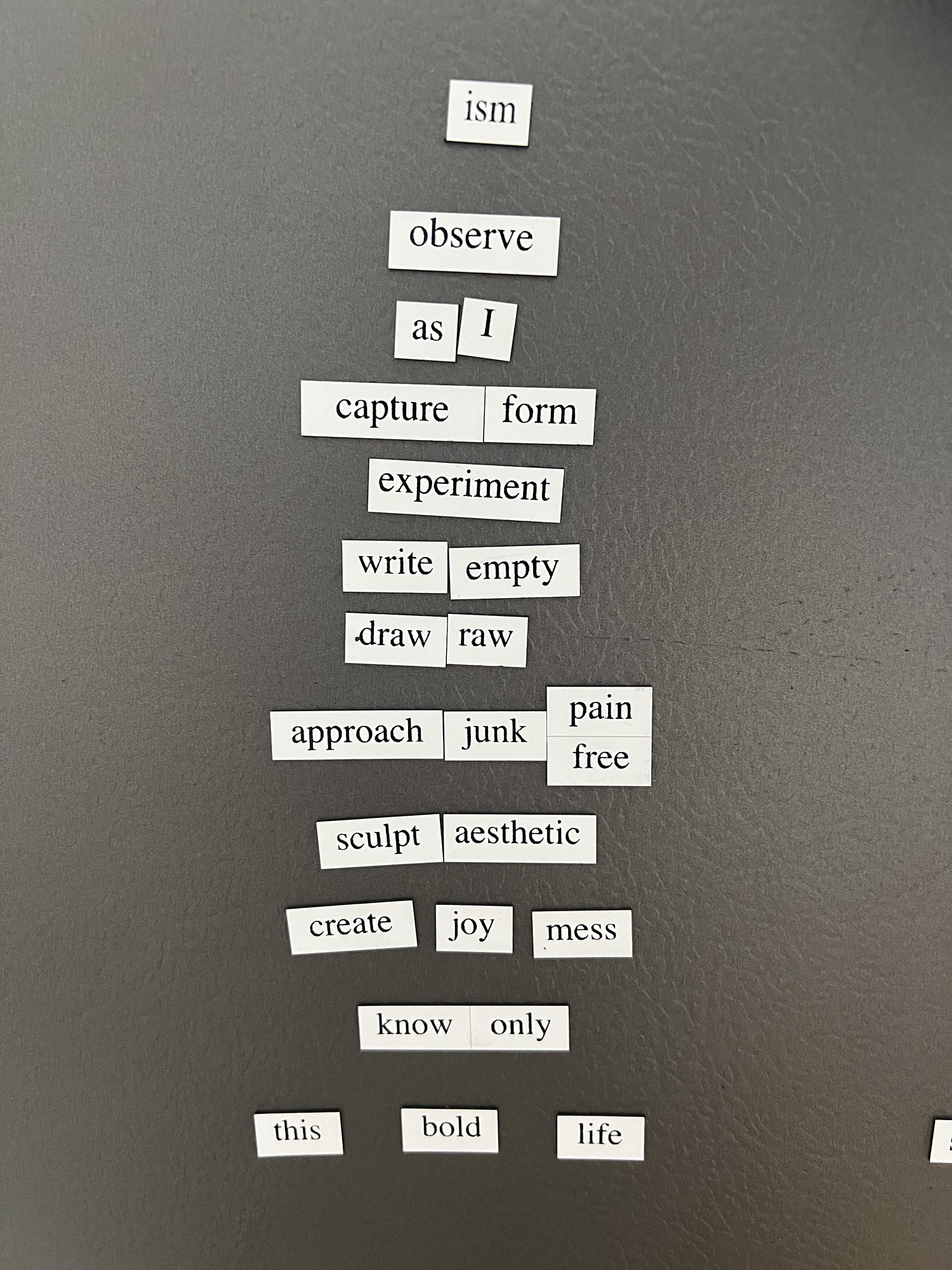
For Christmas, I received a set of magnetic word poetry. This week I took a few minutes out to make a few poems, like this autobiographical one I wrote on Monday:
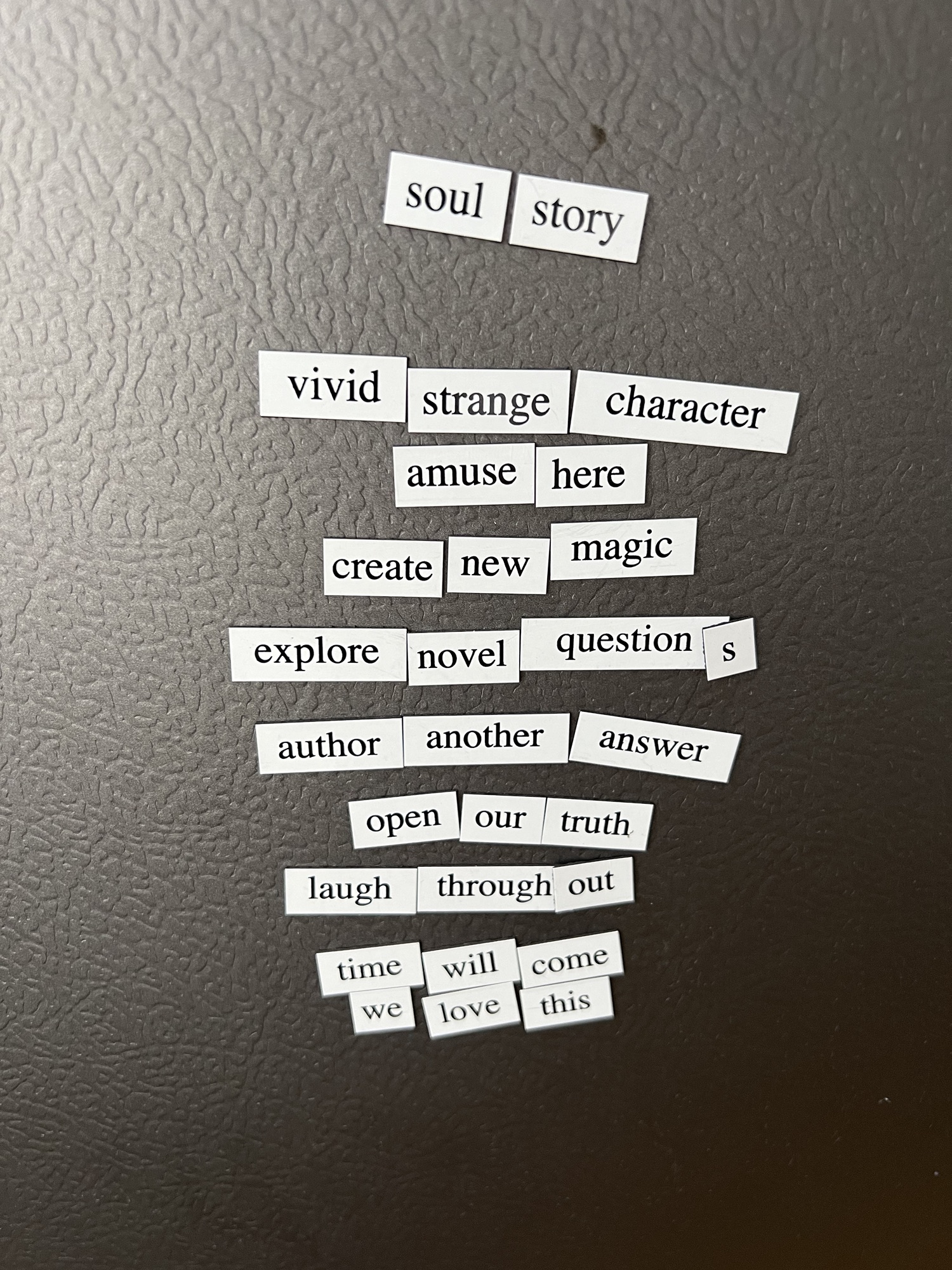
Tuesday I wrote this one, with the same kit, inspired by an email I received about a plein aire group painting trip to Spain. I was so enamored with the idea.
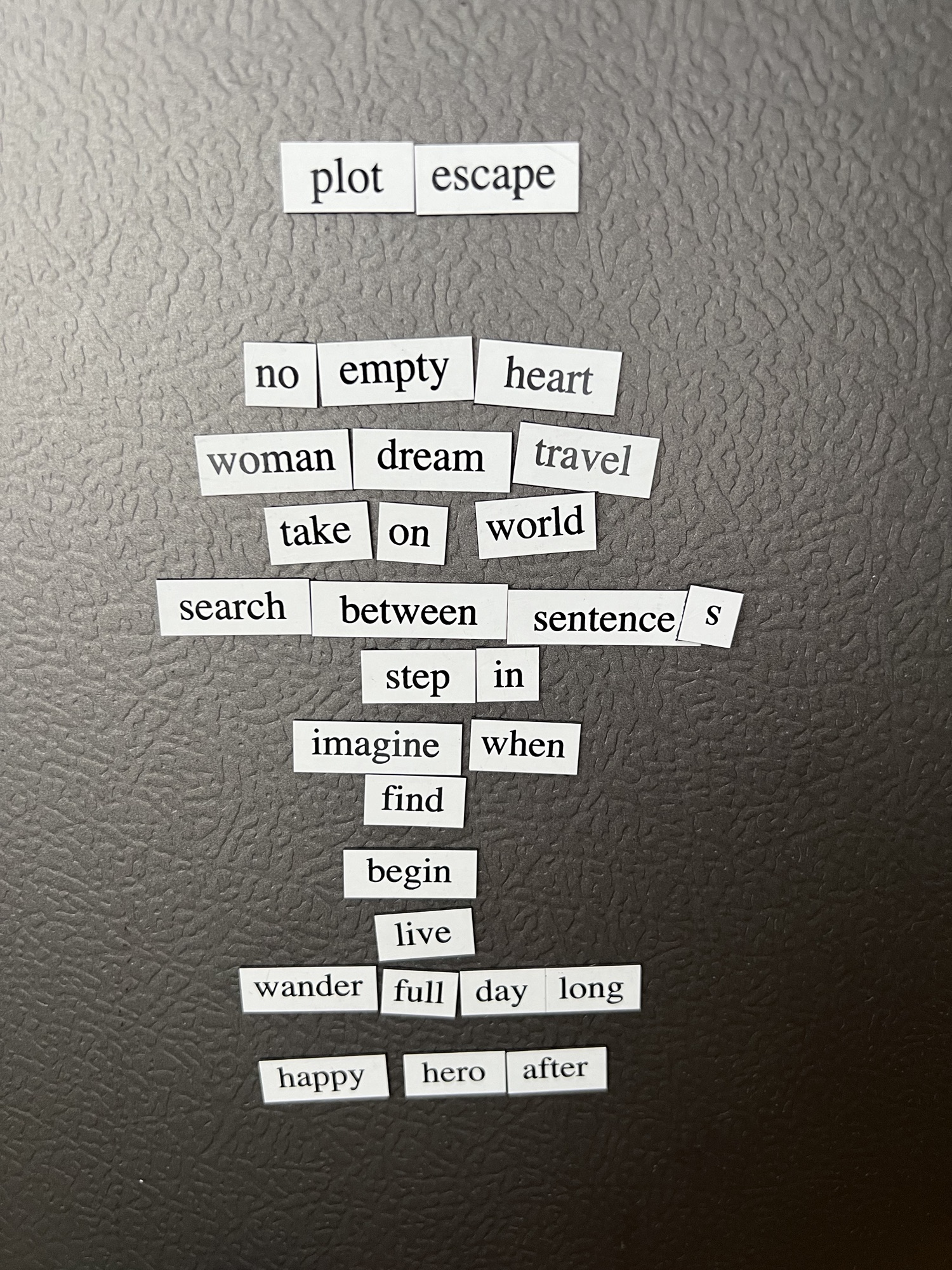
The next day my husband booked it for the fall! I’m so stoked.
I was having so much fun with the poetry. But I identify equally as an artist and a writer so I went ahead and got the artist set, too.
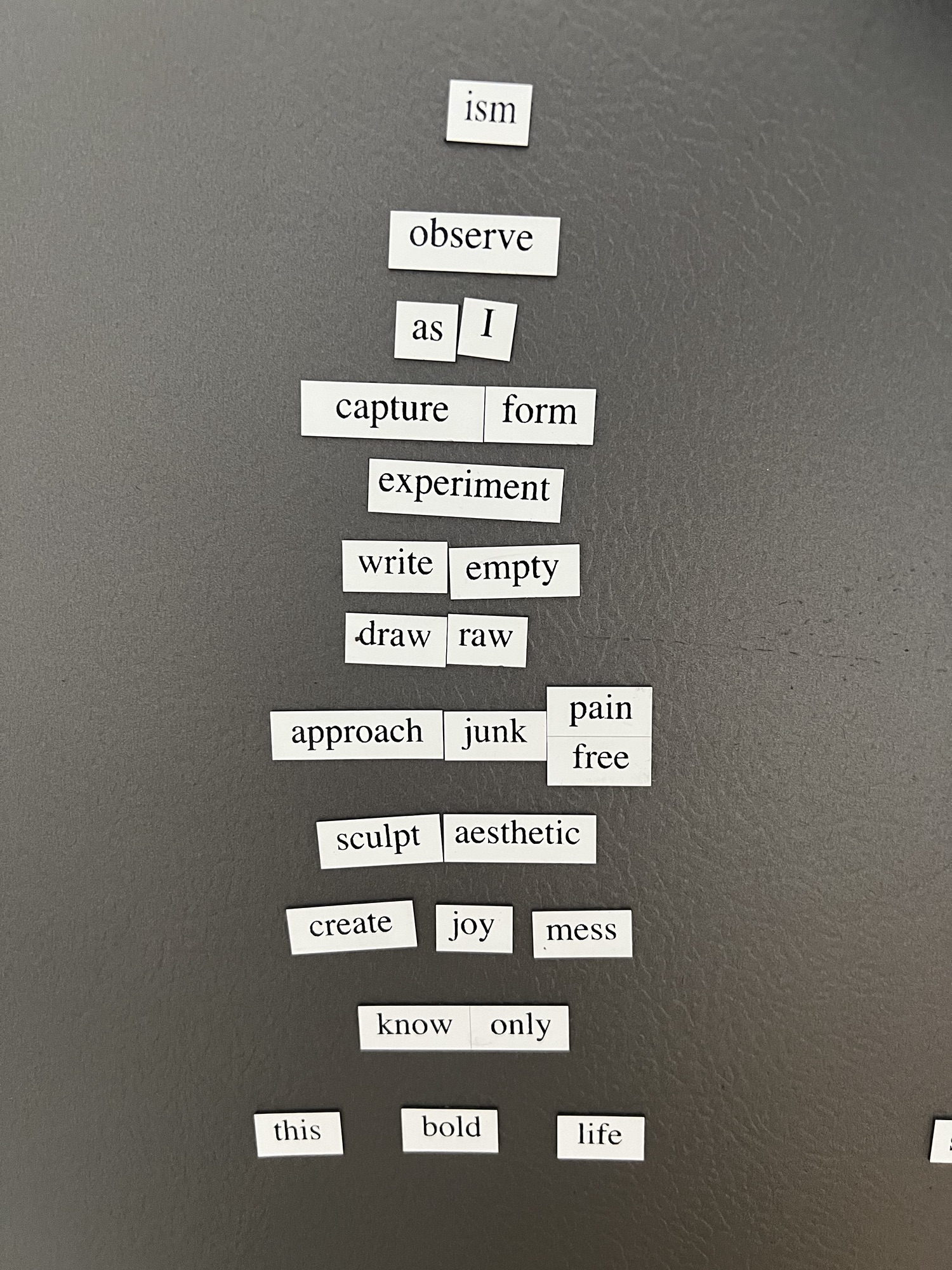
Magnetic Poetry
This is a way to create that is simple and no pressure. It also lies within strict parameters—you’re limited to the words in the grouping. I’ve written before about the benefits of creating within limits. Too much creative freedom is stifling, the boundless opportunities are apt to make an imaginative creature flounder.
The stricter the limitations, the more lax the process. This art form can’t define your creative abilities—you merely worked with what was at your disposal!
Spend more time with play
Austin Kleon, bestselling author of Steal Like an Artist, Show Your Work and Keep Going, is a big proponent of Blackout Poetry. The first book he published (though not as well known) was a collection of these works.
In an interview with Austin Kleon on The Unmistakable Creative, he spoke of how, when people create blackout poetry, they’re more likely to do it than if they were told to create a fully original work of art. On top of that, they were far more likely to share. I attribute that to the aforementioned parameters: it’s not your art, your soul, it’s whatever you were able to pull together with your minimal resources.
Creative Muscle Warm Up
I used to have a quote on my wall that read,
You can’t use up creativity. The more you use, the more you have.
Maya Angelou
I love the essence of that, and apparently it’s proven. My youngest son likes to watch a kid’s science show on Netflix called Brain Child. He’s watched many of the episodes several times over. On one episode, individuals are told to make a logo for a version of themselves. Then they’re told to freestyle rap based on the logo. Though they were miserable at freestyling anything of any lyrical merit, the next task was to create another logo. Each one created work that was more colorful, less rigid, and of better quality after the stuggle of freestyling.
Some Older Poems
I was introduced to magnetic poetry two years ago, at our friends’ ski house. They had bought the Bitch magnetic poetry kit from a local Vermont country store. At the time, I was still in a thick muck of marriage troubles that I was unsure we’d ever see the end of.
It feels really vulnerable to share them now, though the people my husband and I were then are now dead and gone.
I once had a friend in a mom’s group who shared multiple times how no one ever warned her about how hard marriage is. Like many others before her, she bought the Happily Ever After narrative that women are spoon-fed. She had dated her husband for ten years prior to walking down the aisle. What could go wrong?
Sadly, they ended up divorced just a couple of years after their only child was born. Because of her statements, I think it’s fair and appropriate to be honest about previous struggles. They’ve long passed but I can appreciate the way these poems represented how I felt at the time: in a power struggle with someone who had been consistently rude and invalidating, while sexually fulfilled and frustrated at that juxtaposition.
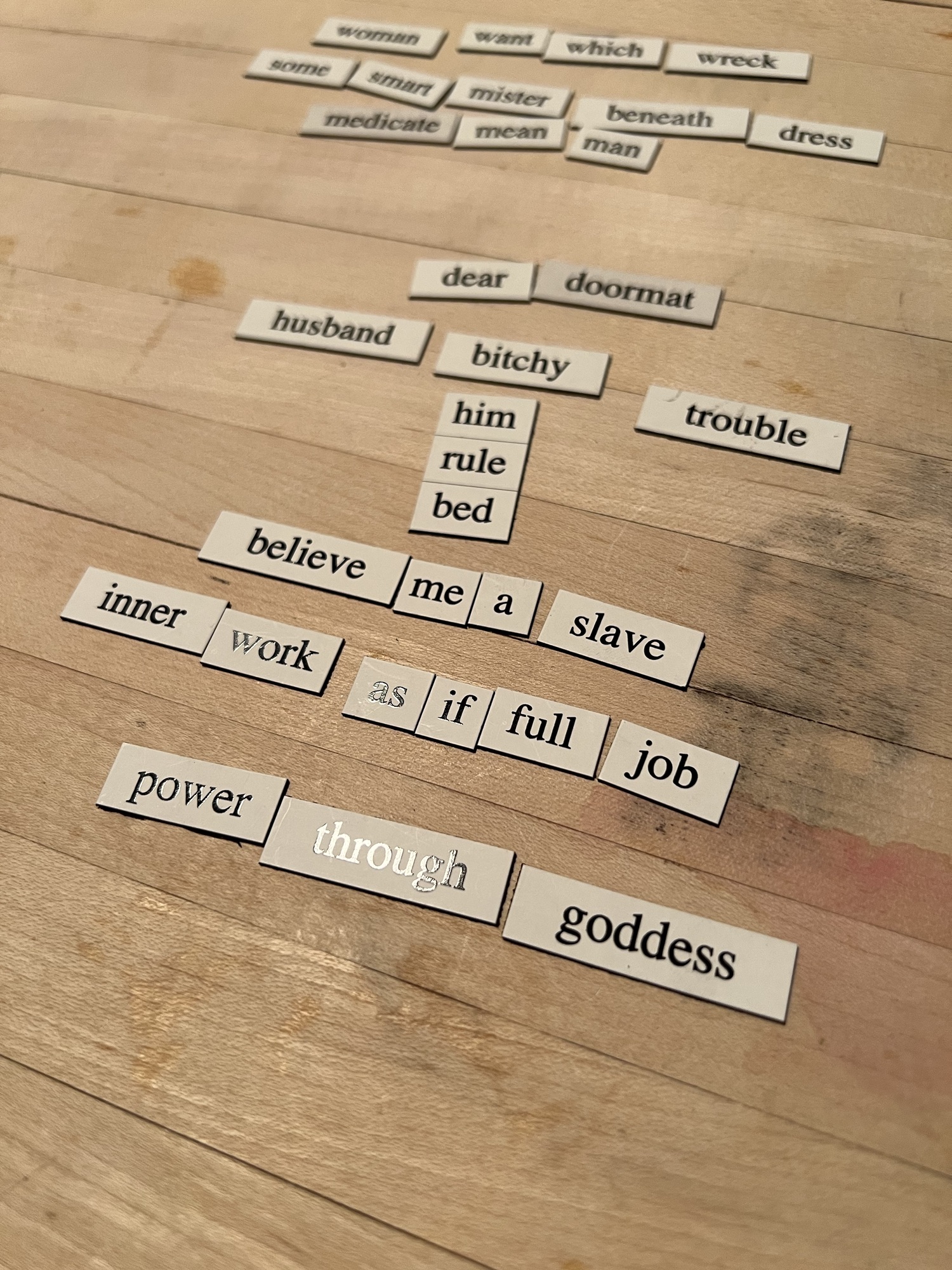
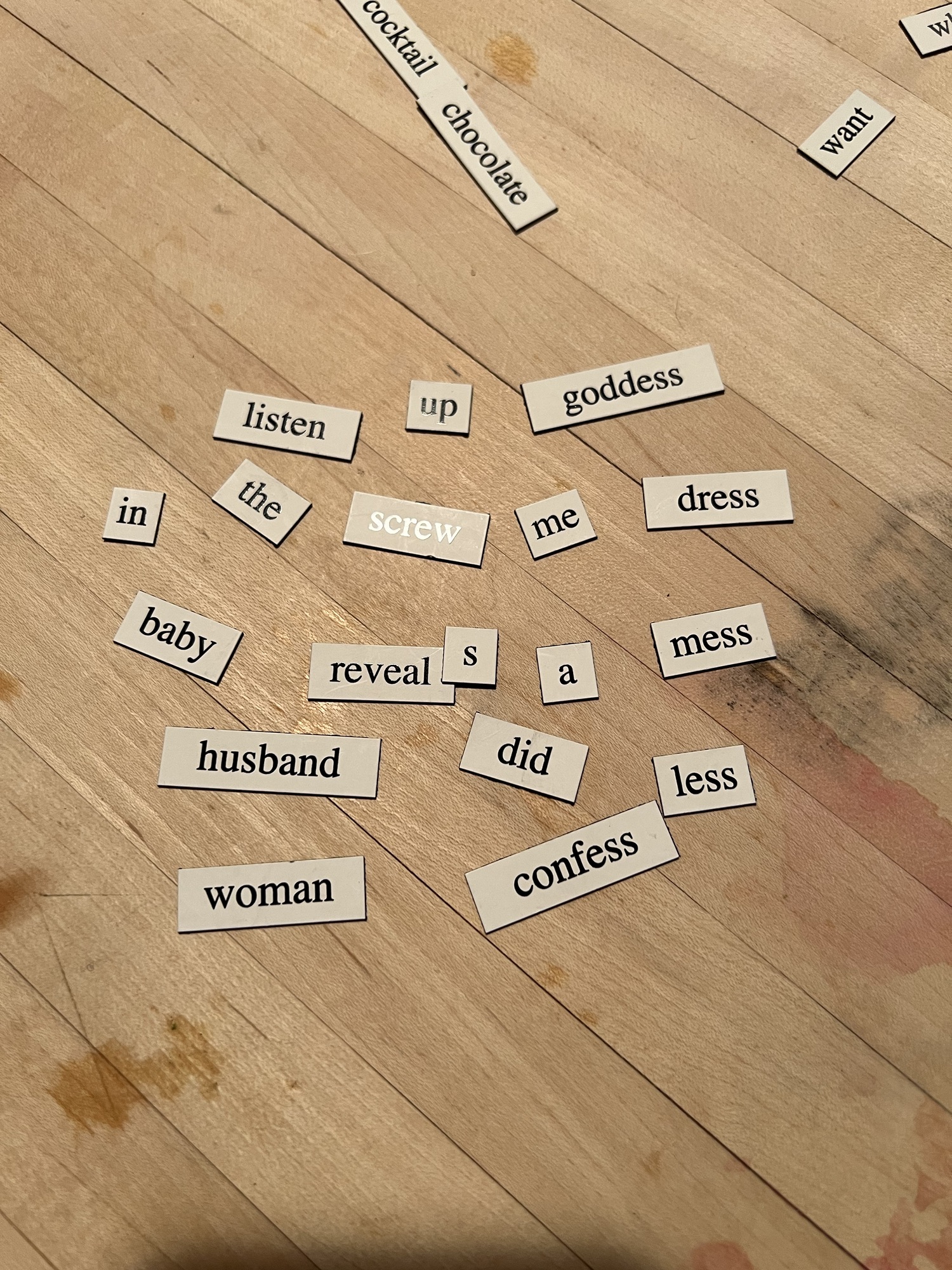
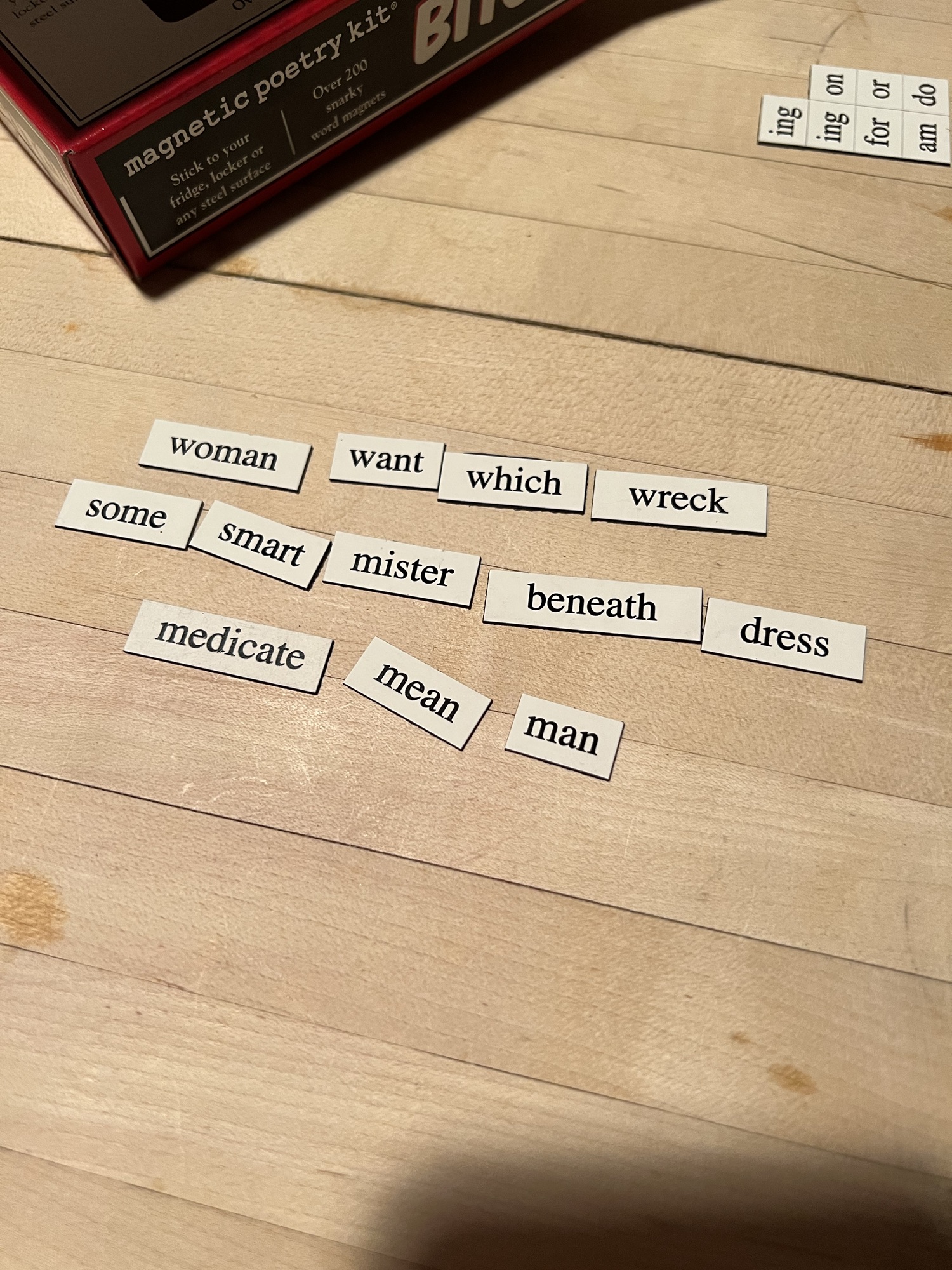
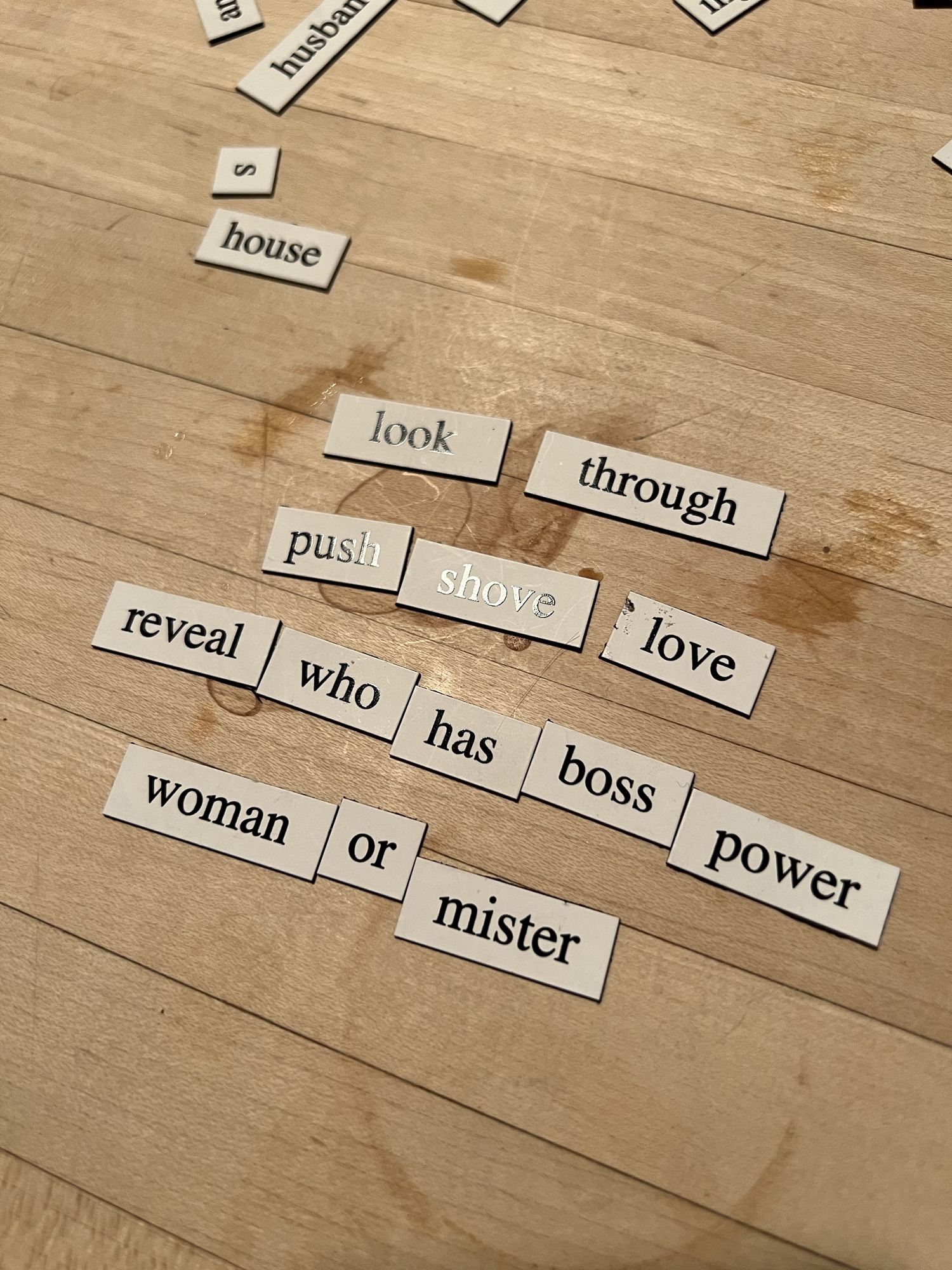
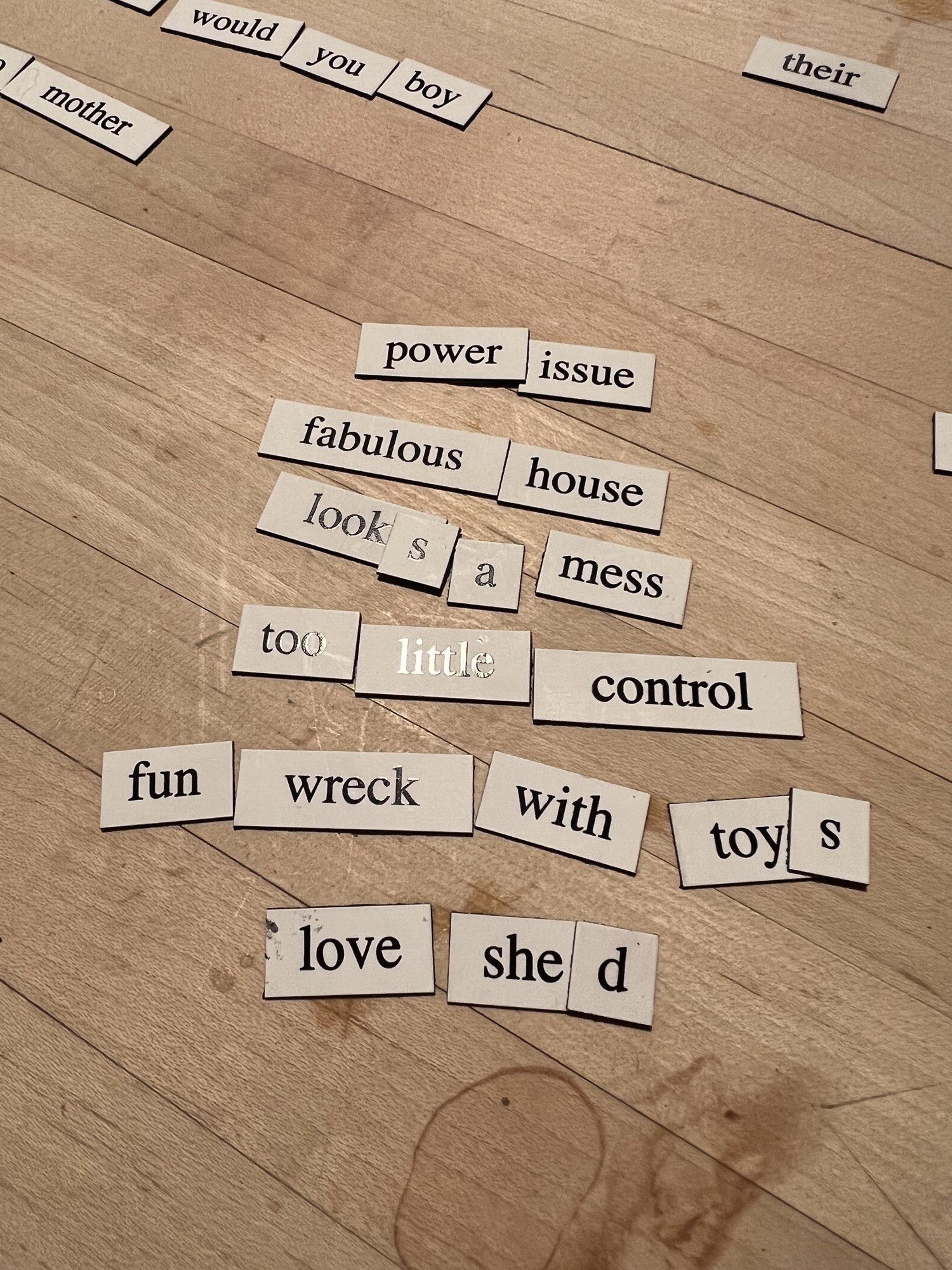
Give it a go!
Have you tried magnetic poetry? Would love to read some of your creations in the comments!
[…] needs to be a better partner or dad or trash taker-outer before you can get down, consider that better sex can be the glue as you rebuild other aspects of your […]
[…] I was pushed to the edge by the pandemic, no-contact for a year with my mother, and grappling with marriage struggles. I stopped trying to heal my mental health on my own through journaling and books and started […]